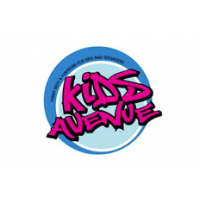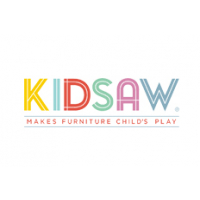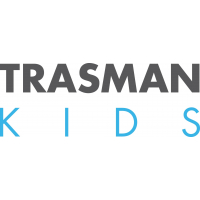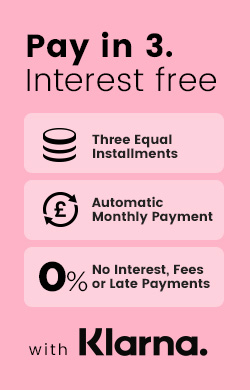
Kids Mattress Buying Guide
Childrens Bed Shop is pleased to bring you this buying guide for kids mattresses. We know that choosing a mattress for a child can be a confusing experience and getting it wrong is costly, both financially and in terms of meeting your child's sleep needs.
Babies and young children need up to 14 hours of sleep a night to function at their best, and those that do not get enough sleep are more likely to suffer from anxiety and behavioural challenges and to display impulsive behaviour. This can affect their interpersonal skills and eating habits as well as causing stress in parents and caregivers. With such wide-ranging ramifications resulting from insufficient sleep, this is something that every parent will want to get right.
In this guide, we will explore the kids mattress options that are available to you, explain when you should buy a new mattress and help you to choose the right mattress for your child. We will help you to understand mattress sizes, look at reputable brands and consider the many different factors that determine which mattress will most benefit your child while also delivering value for money.
All of the mattresses that we stock are made from the highest quality materials and conform to all relevant safety standards, so when you choose a mattress from Childrens Bed Shop, you will receive an excellent product as well as our industry-leading advice and customer service. We are committed to helping you to make the right choice for your child and you will know that you have done so when they wake refreshed from a good night's sleep.
How Do I Choose A Mattress For My Child?
The first step in choosing a mattress for your child is to check the size of your bed so that you know whether you need a junior mattress, a UK single mattress or a European single mattress. You should then consider the age and weight of your child to select an appropriate firmness and construction material. You should consider the length of time that your child is likely to use the mattress to ensure that you choose one which will last as long as possible.
The depth of the mattress matters if you are fitting a bed guard or using a cabin bed, mid sleeper, high sleeper or if the mattress is intended for use on the top bunk of a bunk bed. A deeper mattress is usually recommended when using a bed guard to ensure that no gaps exist in which a child's arms or legs could become entrapped, whereas strict safety guidelines specify that higher beds should be fitted with thinner mattresses of no more than 17cm deep as the top of the mattress must be lower than the bedframe to stop your child from rolling out of bed in their sleep.
Budget is always a consideration in any purchase so at Childrens Bed Shop, we offer a wide range of mattresses at different price points to suit all budgets and personal preferences. All adhere to the same high quality and safety standards and the main differences exist in the cost of the fabrics and components used to manufacture the mattress. Where mattresses feature heat tempered springs or are made from hard-wearing fabrics such as damask, they are likely to last longer and so cost more.
What Type Of Mattress Is Best?
Young childrens' bones are very pliable and soft so for children aged 3 and under, memory foam is not recommended as it can contour too closely to their bodies and fail to provide adequate support. Instead, a medium-firm pocket sprung mattress is recommended.
Children aged between 4 and 7 should still have a reasonably firm mattress as they are experiencing lots of growth spurts and need plenty of support to help them develop as they sleep. A medium-firm pocket sprung mattress remains our preference, but a firm memory foam mattress is also entirely appropriate.
Children over the age of 7 can, if their individual preferences dictate, opt for a medium or medium-firm memory foam or pocket sprung mattress. Both will provide the support and comfort that they need for a great night's sleep.
Choosing the right childrens mattress is often a matter of personal preference and parents should remember that a mattress that feels too firm to them will feel far more comfortable to a young child whose lighter frame and more active sleep patterns require the additional support.
As well as choosing between pocket sprung and memory foam, it is important to choose a mattress of a suitable depth for your child. Most childrens mattresses are between 12cm and 18cm deep as a child's lighter weight means that they do not need as deep a mattress as an adult usually does, but if you will be fitting a bed guard to the bed to prevent your child from falling out in the night, the mattress must be sufficiently deep to ensure that there will not be any gaps in which your child could catch their arms or legs.
How Do Mattresses Affect My Child's Sleep?
Growing children need at least 9 hours of quality sleep every night in order to function at their best the following day so it is essential that their mattress provides them with a comfortable place on which to rest. Children who are restless sleepers often wake siblings and parents, too, so prioritising their sleep needs can also improve the sleep habits of the rest of the family.
When a mattress is lumpy, soft or saggy, it can cause discomfort and potentially damage a child's growing bones and musculature. This obviously prevents them from getting a good night's sleep but can also create a negative association between their bed and discomfort which can result in it being challenging to implement a healthy and calm bedtime routine.
Old, dusty or dirty mattresses harbour contaminants and bacteria which can affect your child's breathing or skin, leading them to cough, sneeze or scratch in their sleep, again distracting them from achieving a peaceful rest and causing lasting discomfort. Mattresses should be fitted with a mattress protector, which is removed and washed regularly to avoid your child coming into contact with environmental contaminants which may aggravate their sleep, and if left unchecked, increase their likelihood of suffering from asthma or eczema.
A child who has had a bad night's sleep is likely to be irritable and find it hard to concentrate. This could affect their studies and disadvantage them in school. It is essential that children are provided with a clean, comfortable and supportive mattress in order to sleep well and function effectively.
What Are the Best Brand of Mattresses Available?
At Childrens Bed Shop we are pleased to offer a range of childrens mattresses from a variety of trusted mattress manufacturers to satisfy everybody's individual needs and preferences. Every product in our range satisfies all UK safety standards and our advisors are trained in safer sleep, helping you to buy with confidence.
Many of the products in our range are hypo-allergenic, featuring materials and technologies which resist dust mites and do not harbour mould and bacteria. Some examples of manufacturers whose products are designed to satisfy the needs of allergy sufferers include Kidsaw, and our new brand, Komfi.
Komfi mattresses are an exciting new addition to our range, featuring an ecofoam core and impressive green credentials. The ecofoam core is ideal for allergy sufferers while the entire mattress can be recycled at its end of life. Other manufacturers whose products boast favourable environmental credentials are Noomi whose mattresses are made from bamboo fibres and Kids Avenue whose products are made in the UK, shortening the supply chain and reducing carbon emissions.
Well known manufacturer, Stompa have been producing high quality kids mattresses for years and they have perfected their temperature-regulating airflow technology which guarantees that even the fidgety-est sleeper will get a sound night's sleep, free from overheating.
It is important to select a mattress with a warranty that aligns with your expectations, and where longevity is of the utmost importance, brands like Komfi and Stompa lead the way, offering 10 year and 5 year warranties respectively.
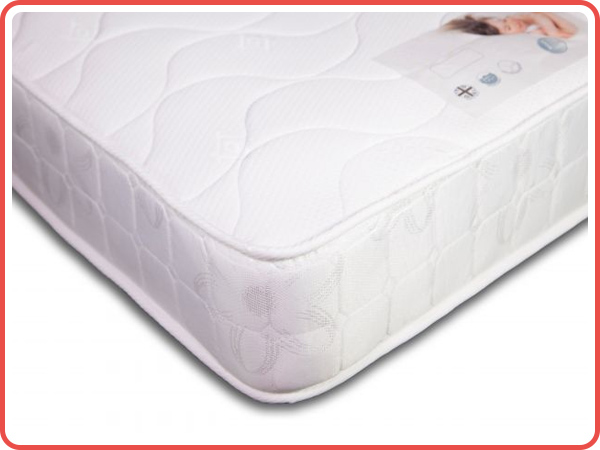
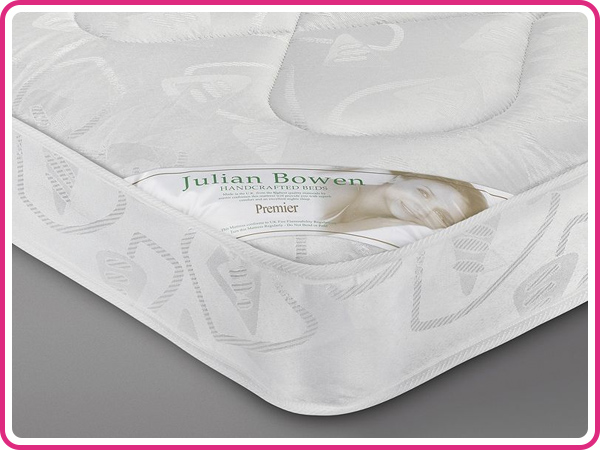

What Mattress Sizes Are Available?
Mattresses are available in a wide range of sizes to suit whatever bed they will be placed upon. Typically a child will graduate from a Moses basket, side sleeper or cot into a cot bed or a single bed of some description at between 1 to 3 years old. There is no defined timeline for this transition and it will vary by child, family and individual circumstances.
Cot bed mattresses, sometimes referred to as junior mattresses, measure a standard 70cm by 140cm, meaning that selecting a cot bed mattress is a reasonably simple process, choosing your preferred depth then narrowing the selection by budget to arrive at a suitable product.
Single bed mattresses are slightly trickier as you will first need to check whether the bed that you intend to place the mattress upon is a UK or European size single. UK single mattresses measure 90cm by 190cm while European size single mattresses measure 90cm by 200cm. This 10cm can make all the difference between a snug and secure fit and a perilous night's sleep!
For safety's sake, it is essential that the mattress that you choose fits securely onto the bed frame, with no gaps in which a child can catch an arm or leg. Children are wriggly sleepers and can easily injure themselves if a gap exists between the mattress and the bed frame so selecting the right size mattress is essential.
If you are unsure which size bed you have, please contact the team at Childrens Bed Shop for advice and guidance before ordering a mattress and we will be very pleased to help you to choose the right size mattress for your bed.
When Should I Buy A New Mattress?
Children need the right level of support from their mattress and this changes as they age. It is recommended that mattresses are replaced every three years when your child is aged between 3 and 10 years old and then you can extend this duration to every 5 years until they are 16 when the typical adult standard of mattress replacement every 8 years becomes common.
Young children may be prone to accidents and nappy leaks so often, mattresses are replaced when they become stained or start to retain odours. It is possible to protect mattresses against many common causes of odour and staining by fitting a waterproof mattress protector and washing it regularly, but if you find that stains have seeped through onto the mattress, it may well be time for a new one.
Equally, if your child's mattress is lumpy, saggy, dusty or noisy, it may be time to invest in a new mattress for them. Children cannot wake refreshed if they don't sleep well, and an uncomfortable mattress is a surefire way to ruin a good night's sleep.
Where Should I Buy A New Mattress From?
You should buy your new mattress from a reputable supplier who understands childrens' sleep needs and whose product range is designed to satisfy safer sleep guidelines, provide the utmost in comfort and deliver value for money.
The company that you choose should express an interest in your needs, listen to your concerns, direct you to appropriate products and be able to explain why they have made the recommendations that they have.
You need to select a company that is transparent about their product stock and lead times, as once you have decided to upgrade your child from a cot into a larger sleeping space, you will not want to be kept waiting because of mattress unavailability. A new kids mattress is often the final flourish in a new child's bedroom so it needs to arrive on time and be as described.
Childrens Bed Shop is a leading supplier of childrens mattresses and we pride ourselves on the completeness of our range, our attention to detail and the thousands of happy customers that we have helped over the years to achieve a good night's sleep.
To find out more about our range, to discuss your needs and preferences or to place an order, please contact the helpful and experienced team at Childrens Bed Shop today. We look forward to helping your family achieve a restful night's sleep on a specially selected mattress that will support your child to sleep well for longer.










